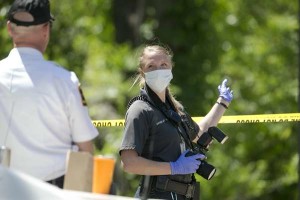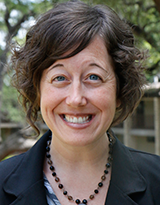
Last week, questions floated around our campus as we learned of several disturbing events over the span of just a few days. When 18-year-old University of Texas student Haruka Weiser became the victim of a homicide on the UT campus, the question came to campus administrators: What’s being done to keep us safe? Our seminary leaders responded with attentiveness and care for our students and community members.
When Austin police arrested a 17-year-old man in connection with this crime, it was discovered he’d received social services by a well-known local nonprofit. Then the question became: What should social services providers do to prevent such tragedies? The nonprofit responded with grief and transparency.
Next we discovered the suspect was a foster child with a documented abuse and trauma history. Then we asked: What role did the foster care system play in this tragedy? The state responded with concern and investigations.
No community is immune to senseless tragedy, yet we all feel the ripples of these traumas. Unexpected losses often raise primary questions about our personal safety and that of those we love. And when we feel unsafe, we naturally look for answers and solutions—ways of preventing or reducing the chances that harm will touch us.
We want to know, What can be done to guarantee such tragedies will never occur again? The unsatisfying answer is “there are no guarantees.” A lot can and should be done to make these tragedies less likely. At the same time, the reality is, social service providers can do top notch work, and still… Foster homes can be loving and peaceful, and still… Campus leaders can employ precautions, and still… tragedy will touch us.
Awareness of our powerlessness to guarantee safety is unsettling. For persons of faith, this can raise theological questions: Is faith meaningful if it doesn’t secure safety? What’s the purpose of prayer? Where is God in tragedy? I’m deeply interested in responses to these queries. Yet what actually brings relief is often not simple answers, but moving through our tension, in community with God and others.
So perhaps instead of reaching for premature answers, we might lean deeper into some relational questions:
What part of me wishes I had more power over suffering?
What would it look like to bring our grief and fear to God more directly?
How can we invite God to soothe and sustain us as we live with unanswerable questions?
Where do we sense God’s presence and activity now, in our community’s caring response to one another?
 Dr. Gena Minnix joined the Seminary of the Southwest faculty in 2014 as Assistant Professor of Counselor Education. Gena is a Licensed Professional Counselor and Marriage and Family Therapist trained in systemic and trauma therapies, personality theory, and Relational-Cultural Theory.
Dr. Gena Minnix joined the Seminary of the Southwest faculty in 2014 as Assistant Professor of Counselor Education. Gena is a Licensed Professional Counselor and Marriage and Family Therapist trained in systemic and trauma therapies, personality theory, and Relational-Cultural Theory.

